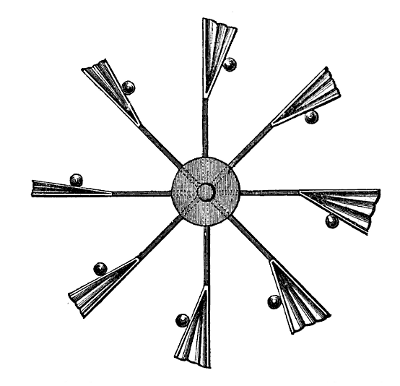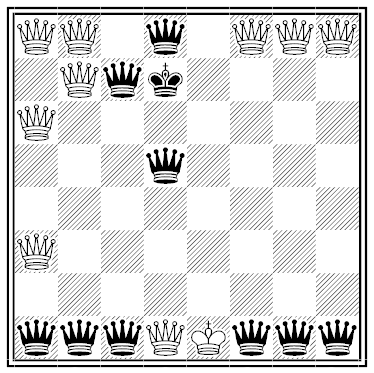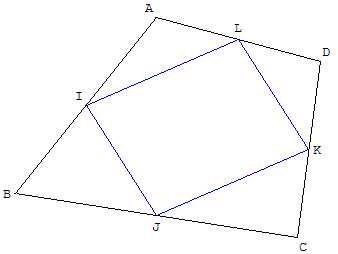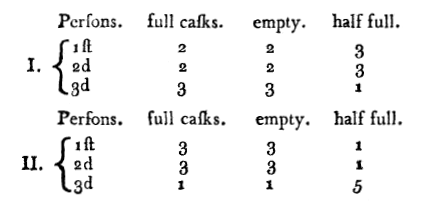
A perpetual-motion scheme from Henry Dircks’ Perpetuum Mobile (1861). Each bellows is fitted with a weight and filled with quicksilver, and a canal connects each opposing pair of bellows. Thus the weights will continually compress the bellows on the left and expand those on the right, forcing the quicksilver always into the rightmost bellows and ensuring that the wheel turns forever. Won’t they?







